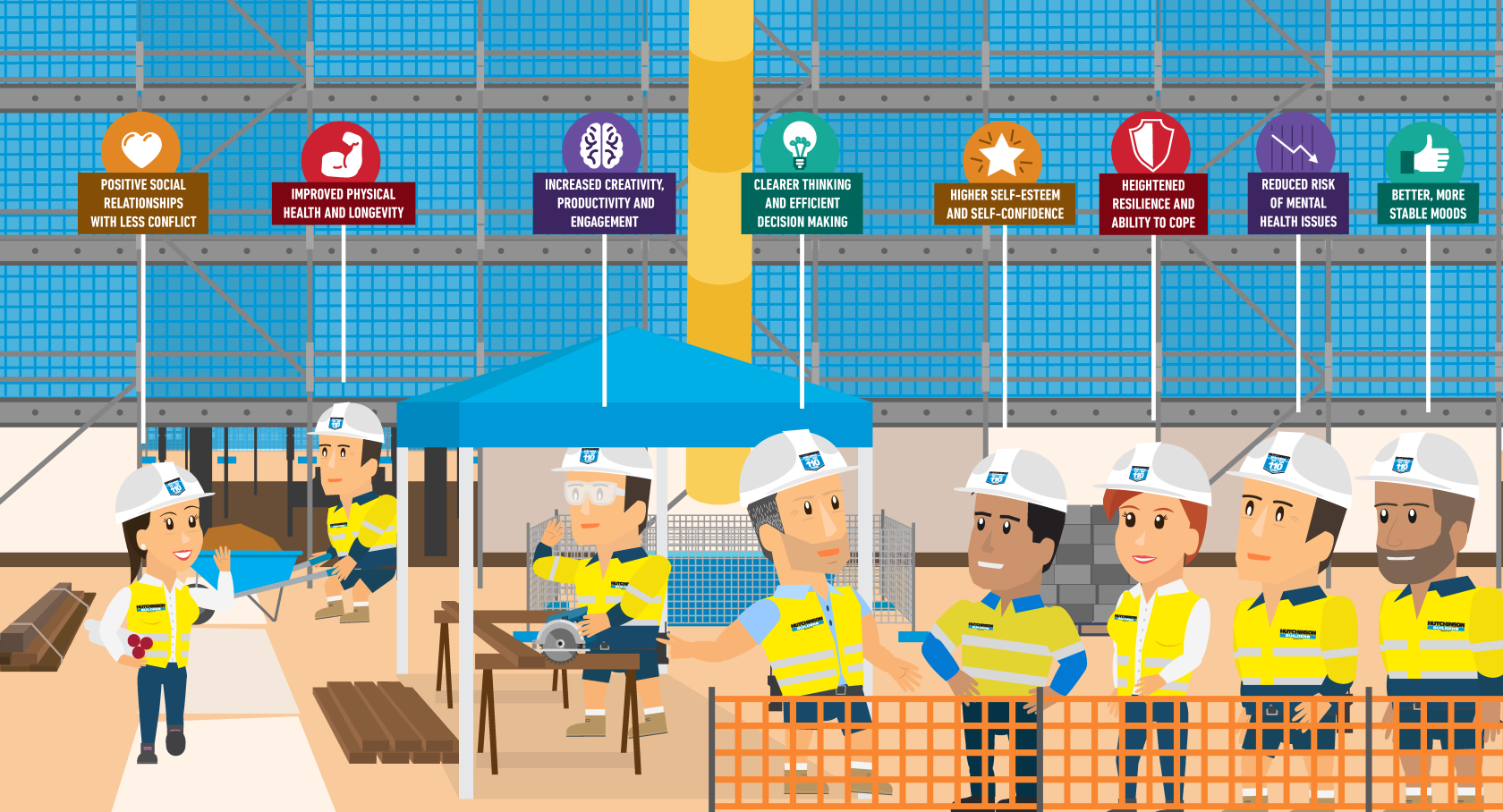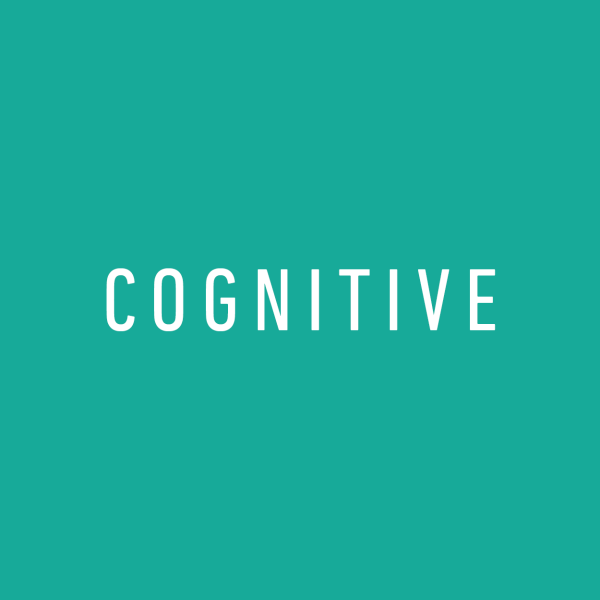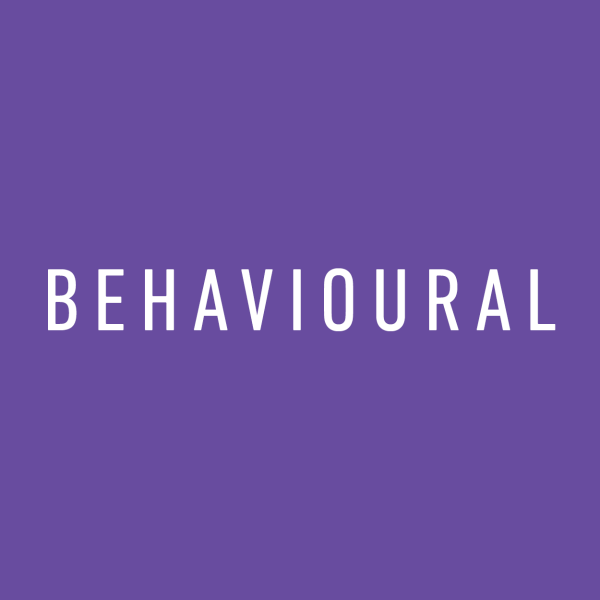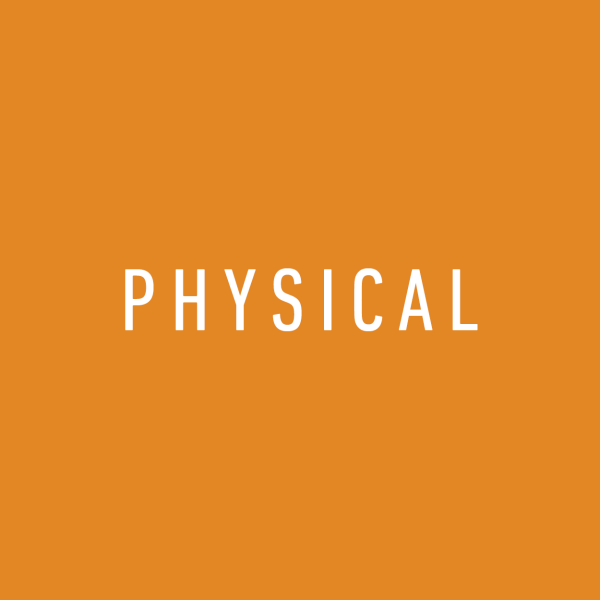1 in 5
Australians will experience a mental health issue in any given year
Resources
Keeping your mental wellbeing in check has many benefits including better mood, more resilience and getting the most out of life. Research also shows that high levels of wellbeing are associated with more positive life outcomes such as better relationships, less stress and better life expectancy. Better mental wellbeing also leads to greater levels of engagement with and enjoyment of work.
In contrast, mental health conditions like depression, can cause distress and impact on day to day functioning. These impacts are also associated with poorer health outcomes and in some cases, suicide. Suicide is of particular concern to the construction industry, where rates are sadly higher than any other industry.
So it's very important that we all take care of our individual mental health as best we can, while supporting others to do the same. This is especially important in times of crisis (like the Coronavirus pandemic) because there are additional pressures that we all face as a result. The good news is there are many easy ways to help yourself keep on top of your wellbeing and you can do what suits you best. Dealing with mental health issues is similar to physical issues - earlier detection and intervention leads to better outcomes.
This page provides an overview of common risks to wellbeing, suggested ways to help yourself, resources to assist and contacts for support. It is intended as a guide only and is by no means a complete picture as everyone is facing different situations. It's important to consult a professional if you find yourself needing help or in stressful circumstances.
Australians will experience a mental health issue in any given year
Number of Australians who will experience a mental health issue in their lifetime
Of all Australians seek help for mental health issues

When you start to feel stress, several things occur in the body as a result.
The nervous system releases a flood of stress hormones (cortisol and adrenaline) into the blood which prepare the body for emergency action. Your heart pounds faster, muscles tighten, blood pressure rises, breathing quickens and senses become sharper. These changes help increase your strength and stamina, speed up reaction time and enhance your focus - preparing you to 'fight' or 'flee' from the situation.
The body's nervous system doesn't have a way to distinguish between emotional and physical threats so the reaction is the same to any stress, no matter what the actual source is.
This is the body's way of protecting itself from danger, so it serves an important purpose in many situations. However, this physiological reaction also takes a toll on you.
There are many different symptoms that can result from feeling stress.




The more your body enters the stress response, the easier it becomes to activate and the harder it is to shut it off.
This has many impacts on overall health, including weakening the immune system, upsetting the natural functions of the body like digestion, increasing risk of heart attack or stroke, speeding up the ageing process and even rewiring the brain leaving you more vulnerable to anxiety and other mental health issues.
Although stress is a normal part of life and is useful in certain situations, letting stress get the better of you may lead to other, longer-term issues like anxiety and depression, so it's important to check in with yourself when you start to notice it. Fortunately, stress can be managed in a multitude of ways and some of these are suggested below.
Everyone feels anxious from time to time. When anxious feelings don't go away, happen without any particular reason or make it hard to cope with daily life or work, it may be the sign of an anxiety condition.
Anxiety is the most common mental health condition in Australia. On average, one in four people will experience anxiety at some stage in their life. Fortunately, there are ways to manage, treat and even prevent anxiety. Some suggestions are presented below.



Depression is more than just a low mood – it's a serious condition that affects your physical and mental health.
You may be depressed if, for more than two weeks, you've felt sad, down or miserable most of the time, or have lost interest or pleasure in usual activities, and have also experienced several of the signs and symptoms across at least three of the categories below.
It’s important to remember that we all experience some of these symptoms from time to time, and it may not necessarily mean you're depressed. Equally, not everyone who is experiencing depression will have all of these symptoms. Fortunately, like anxiety, there are ways to manage, treat and even prevent depression which are detailed below.



You can become more prone to anxiety and depression if you are constantly living with pain or other physical issues. Like anxiety and depression, these issues can lead to a lower quality of life and more advanced health issues in the long term.
Some ways to help yourself avoid physical issues are listed below, but of course you should always seek professional help to treat ongoing, chronic pain.
Exercise not only provides a physical benefit, it also does a lot for your mental state. Exercise is a proven reliever of stress, anxiety and depression and other mental health issues, as well as helping prevent physical issues.
Exercise can help you feel more energetic, sleep better, have better brain functioning and boost your overall mood. This is because exercise has a powerful effect on the brain including release of endorphins, neural growth, reduced inflammation, and new activity patterns that promote feelings of calm and wellbeing.
Sometimes it can feel impossible to make time for exercise. Making it easy on yourself without expecting too much of yourself is the way to go.
A sample of apps that provide access to hundreds of exercise videos that you can do at home are provided below. However, you can do whatever physical activity suits you best, whether it be traditional weights training, walking the dog or going to the beach.
In times of stress, it can be easy to grab a snack or throw something in the microwave because you feel you don't have time to do anything else.
But eating better does not have to be complicated, difficult or radical. Make gradual changes to what you eat so you can stick to it long term. Have healthier snacks on hand so you don't go straight to the vending machine when you feel hungry. Many supermarkets are now selling individually packaged healthy snacks so there is very little preparation for you to do. There are also plenty of meal kits and ready-to-go meal delivery services, like HelloFresh, MarleySpoon, Dinnerly, Youfoodz and other more tailored options on the market now. These services make it easy for you to get access to a varied diet when time poor.
Colourful fruits and vegetables, foods high in fibre (wholegrain cereals and bread, beans, chickpeas, lentils and nuts), fermented foods like unsweetened yogurt, olive oil, and fish (tinned is fine) are essential for keeping wellbeing high. Try to avoid too much red meat – a little bit is fine but keep it to 3-4 times per week. Check out the Healthy Eating poster below for a visual reminder.
It's important not to be too strict or harsh with yourself - just aim to get variety and try to limit things like burgers or desserts to the weekend.
It helps reduce stress, improve memory, boost your immune system and gives you more energy the next day. You should aim to get at least 7-8 hours of sleep every night, but quality of sleep also matters.
Good quality sleep is about the amount of ‘deep sleep’ a person gets, not the length of sleep. 'Deep sleep' should account for 13% to 23% (or around 60 to 120 minutes for an 8 hour period) of overall sleep, which usually occurs during the first five hours after falling asleep. 'Light sleep' and 'dream sleep' make up the other components of overall sleep.
Sleep can be disrupted for a number of reasons, such as stress, illness, pain, anxiety or depression. Not getting enough sleep leads to all sorts of issues, including tiredness during the day, poor concentration, irritability, aches and pains in muscles and bones, and a weakened immune system.
Social support has therapeutic effects on our physical and psychological health.
It's likely that the people around you at work are going through or have been through similar things to you, and can be a great support when things are difficult. Talking to people helps to reassure us and gives us an opportunity to get things out in the open. In fact, research has shown that those who reach out to friends, workmates and family for support tend to live longer.
Getting extra help when you need it is important, as we can't do everything on our own.
When you breathe deeply, the air coming in through your nose fully fills your lungs, and the lower belly rises.
Deep breathing can seem unnatural but by slowing down your breath, you allow more oxygen to enter the body which has a calming effect on the nervous system.
Shallow breathing limits the diaphragm's range of motion. The lowest part of the lungs doesn't get a full share of oxygenated air. That can make you feel short of breath and anxious.
Deep abdominal breathing encourages full oxygen exchange — that is, the beneficial trade of incoming oxygen for outgoing carbon dioxide. Not surprisingly, it can slow the heartbeat and lower or stabilise blood pressure.
You don't have to practice deep breathing all the time. Just 3 to 5 minutes following the below steps when feeling stressed can alleviate the symptoms. Easy-to-use apps can also help guide breathing.
Take a break from what you are doing and find somewhere quiet to sit, even if it's at your normal work station.
Place your hand on your stomach and start breathing slowly through your nose so you can feel your stomach rise and fall.
If you can, count to 4 in your head as you inhale, pause, and then count to 4 as you exhale and pause again.
Continue for a few minutes until you notice yourself feeling more relaxed. Practice any time you feel your stress start to rise.
Connecting with people has been proven to extend lifespan and it keeps wellbeing high.
With modern technology, our phones and apps can help you video chat with others, allowing you to stay connected with friends and family when you can't see them in person.
When possible, plan activities to do with your loved ones such as going out for a picnic or watching a movie together. Enjoyable activities with other people can help boost mood.
However, there are many tools that can help and a good place to start is by making a budget.
Hutchies has also prepared a guide with suggested avenues for seeking financial support and the government provides free help on its MoneySmart website.
Just making a plan and talking to a professional can help you feel more in control of your bank account.
To help you manage your wellbeing, it's good to have a starting point or a baseline of where you are at right now.
It's not always clear what you need to do to get your wellbeing on track, but there are a few places you can start.
Your GP can help you understand where you are at by doing a number of things:
Doing a full blood count to see if you have any physical issues that need taking care of (e.g. low iron)
Getting a referral to other specialists or recommending people to talk to (e.g. nutritionists / physios)
Conducting a general assessment of your mental health
Setting you up with a mental health plan which enables you to get 10 subsidised (or free) sessions with a psychologist
Suggesting avenues for treatment of particular issues
Talking to your doctor and other specialists is easier than ever right now because it can be done over the phone. As well as phone appointments, some psychology practices offer online video appointments that can be easier to attend from the comfort of your own home.
GPs and other providers can also offer more comprehensive insights into your overall health.
This will typically consist of you providing details, having a selection of tests done and being physically examined.
The benefit of this is to help tailor information specific to you, so you can raise your wellbeing by focusing on key areas.
Phones and devices have come a long way in terms of health technology. There are more apps than ever which are targeted towards wellbeing. A selection of useful apps have been provided below.
Wearables are devices you can wear, like watches, that help you track some physical aspects of your health, including steps taken per day, sleep quality and heart rate.
They aren't designed to be a substitute for getting checked out by the doctor, but they can help you monitor general health and alert you to when you need to start moving around because you've been inactive for a while or when your heart rate is higher than normal (indicating stress).
Apple, Samsung, Garmin, Fitbit and many others have wearables available for purchase - just make sure you buy one that is compatible with your phone for better tracking.
Facebook groups, discussion boards like Reddit, and other forums can be good places to seek social support. These types of online forums can connect you with others who may be facing a similar situation, or who share common ground with you. There's social support online for everything - whether it be mental health, based on location, for a specific hobby/interest or many other things. Often hearing from others and what has helped them can motivate you to do the same.
Confronting your wellbeing head on can be overwhelming, especially when it seems like there is a lot to do. You don't have to do everything all at once.
Start by making a list of simple, achievable tasks that you know you can get done, instead of aiming far into the future without solid direction. Use the SMART framework - specific, measurable, attainable, relevant and time-related. It has been found that setting goals that are recognised once they are completed helps to boost motivation and performance.
As you start to tick things off and make goal setting part of your routine, you can also think about the bigger picture and start to plan where you want to be, and how you'll get there.
Meditation is all about the pursuit of nothingness. It's like the ultimate rest. It's better than the best sleep you've ever had. It's a quieting of the mind. It sharpens everything, especially your appreciation of your surroundings. It keeps life fresh.
Hugh Jackman
Actor
There are many free support services available across Hutchies and Australia. A selection of these are listed below.
If life is in danger or you are at risk of harm, call 000 immediately.
| Hutchies' Help Hotline For general advice and assistance regarding health, safety and wellbeing | Email help@hutchies.com.au Phone 1300 488 244 | |
| National Debt Helpline Has free simple steps and support options to fix common debt problems | Online ndh.org.au Phone 1800 007 007 | |
| Salvation Army Doorways Program Provides tools and information to help manage your finances | Online salvationarmy.org.au Phone 13 SALVOS (13 72 58) | |
| Family and Domestic Violence Support (24 x 7) Hotline providing help for anyone at risk of family violence or anxiety | Online 1800respect.org.au Phone 1800 RESPECT (1800 737 732) | |
| Beyond Blue (24 x 7) Support services if you're struggling with depression or anxiety | Online beyondblue.org.au Phone 1300 224 636 | |
| Lifeline (24 x 7) Provides mental health and wellbeing support, including during the COVID-19 situation | Online lifeline.org.au Phone 13 HELP (13 11 14) | |
| Suicide Call Back Service Provides professional 24/7 telephone and online counselling to people who are feeling suicidal or are affected by suicide | Online suicidecallbackservice.org.au Phone 1300 659 467 | |
| MensLine (24 x 7) Special support line dedicated to men with counselling services | Online mensline.org.au Phone 1300 78 99 78 | |
| Counselling ONLINE (24 x 7) Free dedicated drug and alcohol specialist service, available via telephone, email, SMS or group chat | Online counsellingonline.org.au Phone 1800 422 599 | |
| Relationships Australia Provides a range of family & relationship counselling and dispute resolution services | Online relationships.org.au Phone 1300 364 277 | |
| This is a Conversation Starter (TIACS), in association with Trademutt A new free service to chat to a mental health professional over phone or text, 9.30am to 5pm Mon-Fri | Online tiacs.org Phone 0488 846 988 | |
| Mates in Construction (24 x 7) Dedicated support for MATES looking out for mates during COVID-19 | Online mates.org.au Phone 1300 642 111 |
Services Australia may offer other assistance depending on your circumstances. Find out more online:
Crisis and Special Help / servicesaustralia.gov.au/individuals/subjects/crisis-and-special-help
Accommodation, renting and homelessness / servicesaustralia.gov.au/individuals/subjects/accommodation-renting-and-homelessness
Family and domestic violence / servicesaustralia.gov.au/individuals/subjects/family-and-domestic-violence
Managing your money / servicesaustralia.gov.au/individuals/subjects/manage-your-money
| Australian Bureau of Statistics | https://www.abs.gov.au/Mental-Health |
| Beyond Blue | https://www.beyondblue.org.au/ |
| Construction Blueprint | https://www.constructionblueprint.com.au/ |
| Converge International | https://www.convergeinternational.com.au/ |
| WorkSafe QLD | https://www.worksafe.qld.gov.au/mentally-healthy-workplaces/overview |